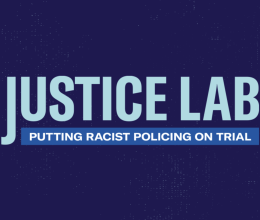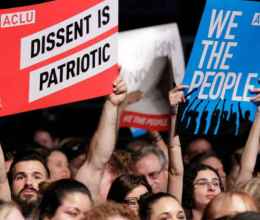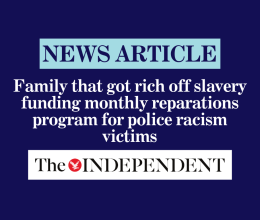NEW ORLEANS – This past January, after a Black man was denied burial at Oaklin Springs Cemetery in Oberlin, LA, the ACLU of Louisiana promptly issued a letter urging the cemetery’s board to revise their governing body’s bylaws and eradicate any “whites only” provision, language, or references. The cemetery later removed all race-based restrictions from their burial contracts.
In a response sent to the ACLU this month, the cemetery’s board president stated that the institution had removed their “whites only” covenant and destroyed all copies of prior contracts. He even provided the ACLU with minutes from the unanimous vote that removed the word “white” from the contract at issue. H. Creig Vizena’s letter stated, “In light of this egregious tragedy I find myself reflecting on the fact that even in his death officer Darrell Semien was able to continue to serve his beloved community posthumously.”
In 1948, the U.S. Supreme Court ruled such race-based restrictions unconstitutional because they violated the Fourteenth Amendment. But across the country an untold number of these covenants remain in place, most notably in home deeds. Upon reading national news coverage about what happened to Mr. Semien’s family, the ACLU of Louisiana wondered how many more of our state’s institutions still had these vicious, racist policies written into their bylaws.
“Though we’re glad the Oaklin Springs Cemetery has removed this racist policy from their books, we know that an untold number of these covenants persist, contributing heavily to segregation and real estate-based systemic racism within our state” said Alanah Odoms, ACLU of Louisiana executive director. “It is deeply disheartening to see so many American cities remain segregated by race, which is why we’re inviting all organizations in Louisiana to take action now and join us in the ongoing fight for racial justice. We urge you to review your own founding documents and make any necessary changes as exemplified by Oaklin Springs Cemetery: void your racist contracts, hold meetings with your board members to develop a new path forward, and actively document your efforts to desegregate our nation once and for all.
We can never disengage from the struggle for racial justice in America. Even the loftiest of our foundational ideals can never fully escape the unspoken truths of our nation’s history. We must constantly reexamine this brutal idea of racial hierarchy that has been woven into the fabric of our lives.”
The ACLU of Louisiana has long made racial justice a core priority, and in the last few years has intensified this focus, working in communities throughout the state to raise awareness about the legacy of white supremacy and challenge racial discrimination and institutionalized segregation in the South.
###






